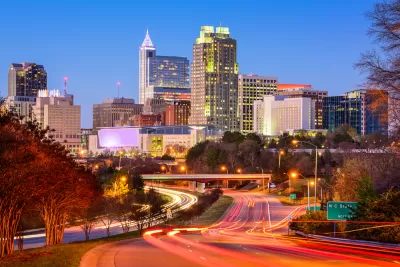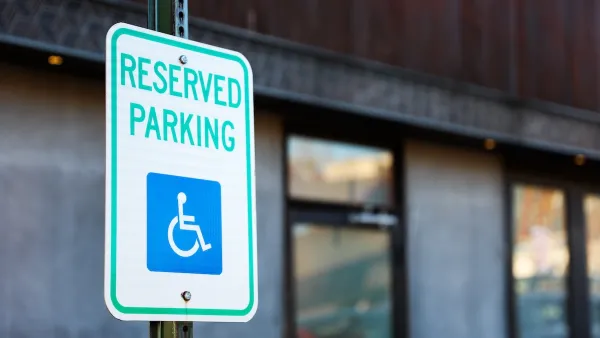The North Carolina capital is reinventing itself as a research and tech hub, attracting major employers and investment along the way.

Writing for the Commercial Observer, Celia Young reports on Raleigh, North Carolina’s explosive growth. “With high-rises sprouting throughout Raleigh’s downtown and Warehouse District, startup hubs and lab conversions transforming neighboring Durham’s former tobacco warehouses, and a burgeoning life sciences sector becoming a bigger national player amid a race for lab space, the Triangle is a ‘supernova,’ according to the latest Urban Land Institute (ULI) Emerging Trends report.”
According to Young, “The region has attracted 44,000 new jobs since the pandemic, just behind Austin and Nashville, with Wake County, where Raleigh’s located, welcoming just over 62 people a day last year.” As Young writes, “While it’s not surprising for a midsize metro in the Southeast and Sun Belt to take strides in today’s commercial real estate market, Raleigh-Durham tops peers with high educational attainment and high income in relation to housing and office costs.”
Young traces the history of Raleigh’s development as a research and tech hub. “Raleigh’s development boom, like so many things in the region, can trace part of its success back to the formation of Research Triangle Park (RTP) in 1959. A collaboration between the region’s academic powerhouses — Duke University in Durham, State University in Raleigh, and the University of North Carolina in Chapel Hill — the 7,000-acre site became a magnet for tech.”
Young points to the city’s willingness to change its zoning code as one component of its rapid growth. “Combined with the city’s Unified Development Ordinance, which consolidates zoning and other planning regulations, Raleigh’s growth policies make it relatively easy to build, and build fast, especially compared to more established markets.” Similar growth is happening in other parts of the state, which is making a concerted push to woo major companies.
FULL STORY: Raleigh Development Boom Rides Life Sciences, Tech Interest

Maui's Vacation Rental Debate Turns Ugly
Verbal attacks, misinformation campaigns and fistfights plague a high-stakes debate to convert thousands of vacation rentals into long-term housing.

Planetizen Federal Action Tracker
A weekly monitor of how Trump’s orders and actions are impacting planners and planning in America.

San Francisco Suspends Traffic Calming Amidst Record Deaths
Citing “a challenging fiscal landscape,” the city will cease the program on the heels of 42 traffic deaths, including 24 pedestrians.

Defunct Pittsburgh Power Plant to Become Residential Tower
A decommissioned steam heat plant will be redeveloped into almost 100 affordable housing units.

Trump Prompts Restructuring of Transportation Research Board in “Unprecedented Overreach”
The TRB has eliminated more than half of its committees including those focused on climate, equity, and cities.

Amtrak Rolls Out New Orleans to Alabama “Mardi Gras” Train
The new service will operate morning and evening departures between Mobile and New Orleans.
Urban Design for Planners 1: Software Tools
This six-course series explores essential urban design concepts using open source software and equips planners with the tools they need to participate fully in the urban design process.
Planning for Universal Design
Learn the tools for implementing Universal Design in planning regulations.
Heyer Gruel & Associates PA
JM Goldson LLC
Custer County Colorado
City of Camden Redevelopment Agency
City of Astoria
Transportation Research & Education Center (TREC) at Portland State University
Jefferson Parish Government
Camden Redevelopment Agency
City of Claremont





























